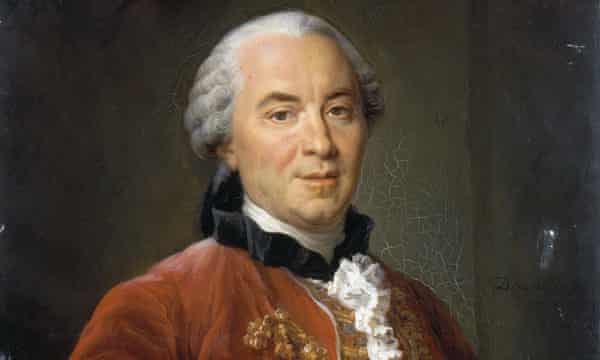Shortly after Charles Darwin published his magnum opus, The Origin of Species, in 1859 he started reading a little-known 100-year-old work by a wealthy French aristocrat.
Its contents were quite a surprise. “Whole pages [of his book] are laughably like mine,” Darwin wrote to a friend. “It is surprising how candid it makes one to see one’s view in another man’s words.”
In later editions of The Origin of Species, Darwin acknowledged Georges-Louis Leclerc, Comte de Buffon, as one of the “few” people who had understood that species change and evolve, before Darwin himself.
Now a new book will attempt to shine a light on the French naturalist’s extraordinary achievements and groundbreaking ideas, which date back to the 1740s. “Buffon was one of the very first people to postulate the change of species over time,” said Jason Roberts, author of a new book, Every Living Thing, which will be published next week, on 11 April. “He did not call it evolution – that word was coined later – but he was one of the first people to talk about it and suggest there was some kind of system.”
In Histoire Naturelle, a 36-volume book Buffon worked on for 50 years, he also put forward the idea that animals were becoming extinct at a time when most natural historians believed that “God would never allow any species to ever disappear or arise over time”, according to Roberts. “The concept of species change and extinction was very controversial.”

Similarly, Buffon’s observations about reproduction anticipated the discovery of DNA: “He suggested there had to be some kind of internal shaping mechanism – that life exists on an organic cellular level and there has to be some kind of recipe or ‘internal mould’ that reproduction follows, to assemble the building blocks of cells into a particular kind of organism.”
